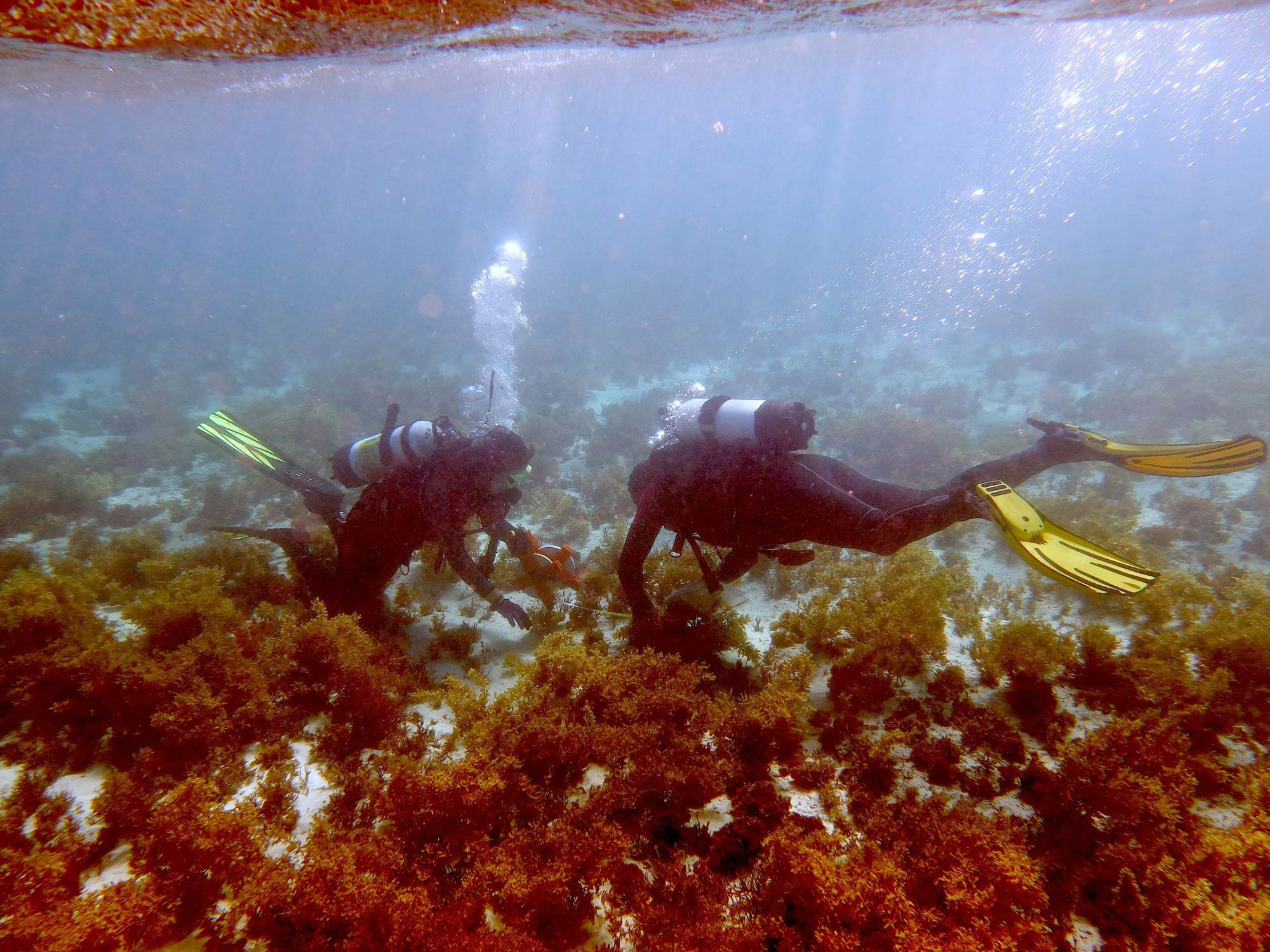A day job under the sea
Dr Christopher Fulton sometimes spends six to eight hours a day underwater, assessing how plants and animals in the ocean respond to environmental shifts such as climate change.
Some days, he says, can be a bit rougher than others.
“There’s days when you just think, ‘I would really prefer a warm spot in the sun and a coffee right now’ rather than getting in that cold water again.”
“But that’s work, isn’t it?”
Dr Fulton is a marine ecologist at the Australian National University, and this work includes identifying nursery habitats for baby fish, studying the effects of tropicalisation in the oceans, and generally following up whatever takes his interest.
“Marine science is a very international job,” says Dr Fulton from the ANU Research School of Biology.
“You can go anywhere in the world to do marine science, because with your skills you can cross international boundaries to see how the oceans work wherever you wish. Whereas if you study something like law, you would have to learn the intricacies of law within each new jurisdiction you visit.”
The perks of the jobs aside, marine scientists are crucial to our understanding of what is happening to our planet in the midst of global climate change.
“The oceans are in a lot of trouble at the moment. Seventy percent of the planet is ocean, and it is soaking up a lot of extra CO2 right now. It’s doing us a big favour by storing that extra CO2 and a lot of extra heat as well.
“Climate change would have been much, much worse if not for the oceans. But the flipside of that is now we’re starting to see things change for the worse in the oceans.
“Climate change is not just about a warming of the earth, it’s dramatic changes between hot and cold, and we’re already seeing huge climate swings. The oceans are really at the centre of all of that, so we have to understand them better.”
As Dr Fulton explains, the recent phenomenon of ‘freeze-overs’ in New York during winter is a classic example.
“It is happening because the way the warm ocean currents that normally flow past part of the USA are changing. Sometimes the warm water is not being delivered along the coast at the right time of year, so they experience these enormous deep freezes.”
Despite spending plenty of time in Port Stephens (NSW) and Ningaloo Reef (Western Australia) to do his marine research, when Dr Fulton started thinking about his career he had more humble ambitions.
“My Dad really enjoyed fishing and my Great Grandad was a naturalist. Going fishing with Dad, we’d pull something up from the ocean and I’d just be mesmerised by this fish. Great Grandad also took me on hikes to introduce me to the little things going on in the forest, and so I got really curious about the natural world.”
However, despite his interests, Dr Fulton didn’t originally set out to become a marine biologist.
“I was told by various people in high school that ‘there are no jobs in marine biology… don’t be silly’. And so I was thinking about training to be a commercial fisherman.”
It was at about this time that the Orange Roughy fishery collapsed, showing the need for more marine science. And perhaps equally importantly, Chris gained some much needed encouragement from his Maitland Grossman High School history teacher, Mr Adams.
“The fact that I’m here and not slugging it out on a fishing boat is largely because of Mr Adams.
“He was instrumental in the way I think about evidence, and helped me when I was doubting whether I could follow what I thought was interesting, despite being told I wouldn’t get a job.”
In this vein, his main advice to students trying to decide on a future career is to do what makes you excited.
“Don’t get caught up in other people telling you that you can’t do something.
“Time and again, I’ve seen people get the jobs they want just because they’re excited and passionate, and they end up happy and in a fantastic job, as a result of that enthusiasm.”

